Student Spotlight: Introducing Justin Davis
We had the pleasure of sitting down with Justin Davis to discuss his schooling experience and what brought him to aspire to become a school health educator. Justin is a junior at UMF and graduated from Washburn High School. Justin is in the Secondary Education practicum this semester, where he will be able to experience the classroom for the first time, which is exciting yet nerve-wracking for the pre-service educator.
Justin Davis
Class of 2020
Community Health Education- School Health
Washburn District High School
Washburn, Maine
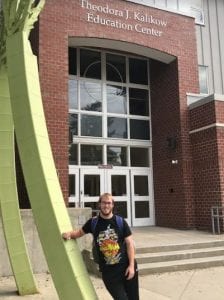
UMF College of Education, Health, and Rehabilitation: What is the most exciting thing that you have experienced so far at UMF, and how will that come into play as a pre-service gym/health teacher?
Justin: I think the most exciting thing about UMF is being in the community. The amount of diversity that this campus has to offer along with the feeling of community and togetherness. Having been here for a few years, I realize that it is possible to create a similar positive community in the classroom. Being part of such a great community, I know that in my future learning community my students can become besties, as I have experienced with my peers in my Secondary Education Practicum block this fall.
UMF CEHR: What brought you to UMF and why did you choose community health?
Justin: I started at Northern Maine Community College and from there I completed some of my general education credits to see if I was capable of handling college. I realized, that in fact, I was very capable of handling a four-year university and really wanted to pursue that path. I knew that I wanted to attend UMF because my step mother went here for community health and found great success after graduation. I realized that with a community health degree there is a lot of opportunities and the faculty will direct you to your passions. Community health has a broad spectrum and I knew that with this degree I could become a gym teacher like I have always wanted to. Coming to UMF made me realize I was capable of college and becoming a gym/health teacher. There is always room for flexibility within community health. If I decided that education was not for me, I could always take another route within community health and I am glad that I have that opportunity.
UMF CEHR: Who is really influential in your life and how did they inspire you to become a teacher?
Justin: A lot of people in my life influenced me to become a teacher. I cannot really pinpoint one person. My parents, camp counselors, and teachers were all good influences on my life. They all influenced me and seemed to recognize that I could handle situations that a teacher could be in, and helped me figure out what direction I wanted to go in. All of the people who influenced me helped me recognize that I was capable of becoming a teacher and that is when I believed that I was able to do it.
UMF CEHR: What do you hope to gain from your program?
Justin: I want to gain knowledge and skills to be able to teach to the best of my ability. To know my concentration facts and to continuously engaged in research every year. If I see someone [former student] on the street who has a question about health, I want to be able to put them in the right direction and correctly answer their question.
UMF CEHR: If you could ask a question to an alumni from Community Health (School Health), what would you want to know about post-UMF life?
Justin: I guess it would be how easy was it to get a job, because they don’t really have many options. Given the limited amount of spots a school offers for health and gym educators, it can be difficult to find a job. A school can have 3-4 English/Language Arts educators, but there is only 1-2 gym/health educators, which makes the job market tighter.
UMF CEHR: Can you explain your role at the Fitness and Recreation Center (FRC) and how that helps you improve on your knowledge as a Community Health major?
Justin: At the FRC, I am the student leader of the building attendants which is the bridge from the regular building attendants to the supervisors. For my role, I have to know a lot about the tools and activities that happen at the FRC and activities. I know how all of the tools and equipment operate, the group fitness schedule, and communicating with the building attendants.
UMF’s Rehabilitation Services Degree- What You Need To Know!
The Rehabilitation Services degree offered at the University of Maine at Farmington is a hands on human service degree aimed for those individuals who wish to help people with at-risk conditions to function in their daily living, learning and working environments. If you have a passion for helping others in any population, this degree will help prepare you to make a huge difference in the lives of those in need. (Retrieved from http://www2.umf.maine.edu/advising/about/explore-majors-at-umf/rehabilitation-services/)
After fulfilling the 56 credit hour major requirements and three program electives, you will have a greater understanding of the field of human services, the helping relationship, and counselor characteristics. Students who complete the required courses listed here will receive a Bachelor of Science in Rehabilitation Services.
Along with this degree, students have an opportunity to get their Mental Health Rehabilitation Technician (MHRT/Community) Certification. The courses that are required to be eligible for this certificate are:
- REH 249 Psychosocial Rehabilitation
- REH 270 Vocational Counseling and Placement
- REH 320 Addiction Rehabilitation
- REH 420 Trauma and Resiliency
For more information about this certificate, click here.
So what exactly can you do with a Rehabilitation Services degree? Here are some jobs that UMF graduates have obtained with this major:
Licensed Social Worker: these professionals help people with a broad range of issues, including psychological, financial, health, relationship, and substance abuse problems. As well, they help to improve the lives of others and society together.
Guidance Counselor: their duties are to work with students and parents to help guide students through their transition of academics, behaviors, and growth. Guidance counselors can work in elementary schools, middle schools, and high schools.
 Occupational Therapist: these professionals help to improve the lives of individuals with their daily life skills. These individuals may have physical, social, mental, or developmental disabilities.
Occupational Therapist: these professionals help to improve the lives of individuals with their daily life skills. These individuals may have physical, social, mental, or developmental disabilities.
Substance Abuse Counselor: their duties are to work with individuals who may have a dependency on drugs or alcohol and to help them overcome the addiction by seeking a treatment plan. As well, substance abuse counselors get their clients back into a healthier transition and obtain goals they wish to pursue after treatment.
If you have a passion for working with individuals, and want to give back to those in need, then the degree Rehabilitation Services would be a great fit for you! To learn about more information about this degree, and all other minor requirements and certificates offered, visit the Rehabilitation Services page as well as the Course Catalog!
Ready, Set, the Academic Year is Here! We’re Ready, Here’s How You Can Be, Too!
Welcome back to UMF, beavers! We are so excited to have everyone back on campus as the academic year is kickstarting! As you begin this year, take time to reflect on yourself. What things you do well as a student? How can you improve as a student and a learner? Having a few months off from school is difficult, but we are here to give you advice on how to handle the transition like a champ, and to be ahead of the game!
1. Organization
Planning out your days is a huge life saver. Carrying and using a planner to help track your classes and accumulated coursework will make your time at the library more productive. Keeping track of your syllabus and highlighting due dates will keep you in the know. This way, when things come up you are able to handle the stress because you’re aware of your deadlines. Organization is one of the best ways to manage your stress. Click on some of the great apps that can help you stay on your game!



2. Stick to Your Plan
Having a daily plan is really important because everyone’s schedules can become so crazy that some days it feels difficult to catch a breath. That’s why creating a “to-do” list or having a handy app or planner will help you stay ahead of yourself. If you stick to your plan and study truthfully (no procrastinating), then you will have time for your social activities. Many students find that getting involved helps them plan out their days better, and they tend to procrastinate less.
3. Come to Class Prepared
Going to class prepared with all of the materials needed to succeed is a sign of excellence, and we want you all to succeed. Have you ordered your textbooks yet? ECAMPUS is UMF’s textbook ordering website, which is really convenient, since the books can be shipped right to the bookstore! Other suggested textbook ordering sites are www.chegg.com, www.amazon.com/textbooks, www.slugbooks.com and www.valorebooks.com. Completing your readings is a sign of your preparation for class. Readings are really important to the structure of many classes, as many class meetings are spent discussing the readings. At the end of the semester, the discussion participation often contributes to your final grade. So, plan when and how long your assigned reading will take you and stick to the plan. Make the reading assignments more enjoyable by finding new places to read and put forth your best effort! Going to class prepared also means showing up on time. Review your schedule and make sure you know where you need to be. Get there early and prepare yourself for the class.
4. Go to Office Hours
Office hours are very important because they allow you to engage with your professor/advisor in an unique way. Within the first few weeks of your courses, stop by and get to know your professors, because they want to get to know you just as much! If you are stuck on homework or understanding an assignment, go to office hours! Professors are usually really helpful and understanding and love when their students go the extra mile to better themselves and to understand what is expected of them. Office hours are posted on most syllabi, but if you are unsure, email your professors or walk by their office as most professors post hours on their doors.
an unique way. Within the first few weeks of your courses, stop by and get to know your professors, because they want to get to know you just as much! If you are stuck on homework or understanding an assignment, go to office hours! Professors are usually really helpful and understanding and love when their students go the extra mile to better themselves and to understand what is expected of them. Office hours are posted on most syllabi, but if you are unsure, email your professors or walk by their office as most professors post hours on their doors.
5. Use Down Time Wisely
After a summer of working and (hopefully) relaxing, it is difficult to jump back into the swing of things. If your class gets out early and you have an hour before your next class, try heading to the library. That is one less hour you have to work on your assignments later that night. Time is everything! Need a five minute facebook break? Don’t do it, that will end up to being a twenty, forty, or even sixty minute facebook break. Of course, Netflix is great, but create a balance between work and play and use your time wisely.
6. Sleep is NOT Overrated
In order to stay on top of your studies, sleep is one of the most important things. Getting a full eight hours of rest will help you be successful at UMF. Classes do get tough and time often gets tight, but getting your sleep is very important.. Naps are totally awesome, but you still need a good night’s rest!
7. Take Care of Yourself (Eat healthy, Stay Hydrated and Exercise)
At times, college can be overwhelming and stressful, but don’t let that get the best of you. Find ways to manage your stress though things that you enjoy and make healthy choices. Fill half your plate with non-starchy vegetables for a healthy meal. Try a fruit to satisfy that sweet tooth. 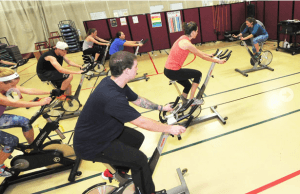 Getting up and moving is very important for your physical and mental health. The FRC has great workout classes and are opened until 11pm during the school year so you can squeeze a workout into your busy schedule. Even exercising for twenty minutes gets the blood flowing and can increase your academic performance! Bring a water bottle around with you. Staying hydrated helps you focus and stimulates your brain cells. All of our classroom buildings and resident halls have water fountains, so take advantage of it. It is really easy to catch various illnesses while living with others, being stressed, and not focusing on your health. So, remember to eat healthy, stay hydrated and exercise.
Getting up and moving is very important for your physical and mental health. The FRC has great workout classes and are opened until 11pm during the school year so you can squeeze a workout into your busy schedule. Even exercising for twenty minutes gets the blood flowing and can increase your academic performance! Bring a water bottle around with you. Staying hydrated helps you focus and stimulates your brain cells. All of our classroom buildings and resident halls have water fountains, so take advantage of it. It is really easy to catch various illnesses while living with others, being stressed, and not focusing on your health. So, remember to eat healthy, stay hydrated and exercise.
8. Use Your Resources
We have great tutors on campus who can help you with almost anything, so why not use your resources? They are truly the experts and are really helpful. If your class holds SI (Supplemental Instruction) Sessions from a former student who did outstanding in the class, GO! Not only is the SI Sessions helpful at expanding and understanding the content but the SI leader often tells the professor who attends and that shows you are taking an initiative.
9. The Library is a Great Place
Utilize the quiet places on campus to stay focused on your coursework and readings. Your friends are awesome but can be really distracting and want to talk your ear off while your test is the next morning. Mantor Library has many options, including private study rooms (in the basement and on the second floor), the mezzanine, the Learning Commons (first floor), Mantor Cafe, and the third floor which is often the quietest. The Learning Commons, private study rooms and Technology Center have spaces that are designed for group work as well.
10. Get Involved
Whether its with sports teams, club teams, on-campus clubs, or the intramural teams at the 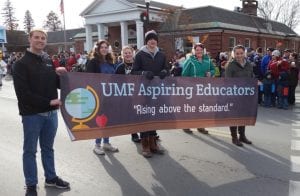 FRC, get involved in something you are passionate about. By getting yourself out there, you meet new people who often times turn into friends and great study partners. UMF has a ton of awesome clubs and activities. Towards the end of September, there will be a club fair where you can learn about and sign up to join club(s). Head to our Instagram page @UMF_CEHR to hear about all of our education clubs!
FRC, get involved in something you are passionate about. By getting yourself out there, you meet new people who often times turn into friends and great study partners. UMF has a ton of awesome clubs and activities. Towards the end of September, there will be a club fair where you can learn about and sign up to join club(s). Head to our Instagram page @UMF_CEHR to hear about all of our education clubs!
Most of all, have fun! There are many resources to help you. People on our campus have been known to be very friendly and welcoming whether you are a new, transferring or returning student. We look forward to seeing you around campus this year and good luck! Study hard, take breaks, and have fun!
Community Health: What Can It Do for You?
Learning-by-doing is the foundation of the Community Health Education program at the University of Maine at Farmington as students gain hands on knowledge through field work in the community- a valuable aspect of UMF’s program.
Students who major in Community Health Education (CHE) will receive a Bachelor of Science in CHE and be eligible to become a Certified Health Education Specialist (CHES) upon graduation. The CHE program includes a required practicum and internship that allows students to assess individual and community needs for health education; planning, implementing and administering strategies, interventions and health education programs; conducting evaluation and research related to health education; serving as a health education resource; and communicating and advocating for health and health education. There are many field placement options for CHE students!
 Community Health Education student Mina Craig recently studied in India, where she was involved in a project studying the access to public health in rural villages. She also studied how social and environmental determinants impact one’s access to healthcare. Community Health Education student Mariah Jane Sloat interned as a Cancer Health Outreach Educator at The Patrick Dempsey Cancer Center for Hope & Healing in Lewiston. A Community Health Internship can open many doors for students.
Community Health Education student Mina Craig recently studied in India, where she was involved in a project studying the access to public health in rural villages. She also studied how social and environmental determinants impact one’s access to healthcare. Community Health Education student Mariah Jane Sloat interned as a Cancer Health Outreach Educator at The Patrick Dempsey Cancer Center for Hope & Healing in Lewiston. A Community Health Internship can open many doors for students.
Along with a degree in CHE, students have the option to choose from a variety of minors and concentrations, including:
- School Health Education concentration- teach in K-12 classrooms in Maine (and many other states)
- Outdoor Recreation Programming concentration
- Child and Adolescent Health minor
- Coaching minor
- Environmental Studies minor
- Health and Medicine minor
- Physical Fitness minor
- Nutrition Education minor
- Addiction Rehabilitation certificate
- Alpine Operations certificate
Students will learn from faculty members with a broad range of expertise and specialties, including: chronic disease prevention, men’s health issues, cancer prevention, college students behavior change, theories of health behavior, women’s health, genetics, public health biology, global health, infectious disease, international epidemics, gender, sex & culture, international health & policy, intimate partner violence, mothering, women’s health, stress management, suicide prevention, and many more! With such a variety of topics, students are sure to find a path that they are passionate about!
So what exactly can I do with a Community Health Education degree? Well, there are endless possibilities, but some of the most common careers are…
- Environmental Health Specialist– Environmental health specialists develop plans and programs to prevent and control environmental problems that affect the health of the population. Educating the public on the health risks of environmental contaminants is also one of the duties of an environmental health specialist.
- Health Educator– Health educators work to educate the public about healthy living and promote wellness. Educating the public about health topics may include creating programs
 and education materials. Health educators may work in hospitals, public health agencies, nonprofit organizations or businesses.
and education materials. Health educators may work in hospitals, public health agencies, nonprofit organizations or businesses. - Occupational Health and Safety Manager- Occupational health and safety managers work with the Occupational Safety and Health Administration (OSHA) in order to keep a close watch on employer compliance with employee safety policies. In collaboration with health administration teams, these community health workers are involved with the removal of harmful biological or chemical agents. These managers provide guidance and advisement in coming up with ways to meet OSHA regulations and control potentially dangerous situations or items.
- Family Planning– Including pregnancy education, post-mortem education, parenting classes, mother coaching, and neonatal/infant health
- Personal training, physical fitness consultant and instructor
- Advocate for underserved populations (rural communities, low-income families, immigrants, non-English speaking individuals, those with disabilities, the elderly, etc.)
- Disease control and prevention- Provide education, review hygiene protocol, provide community resources (vaccination clinics, Planned Parenthood/Family Planning, emergency services, etc.)
If you like learning about people, environment, behavior, and health, love helping others, and want to give back to the community, then a degree in Community Health Education would be perfect for you! To learn more about the Community Health Education degree, and the other minors and certifications offered, visit the UMF Community Health Education page.
Top Tips for Student Teachers
It can be nerve wracking or even intimidating to go into your Student Teaching placement. There are a lot of expectations that you need to follow, assignments to complete, and a lot to learn. When you begin your Student Teaching, it’s important to prepare what you can early on and to think about what else is expected of you. Below are some tips to help you transition into your Student Teaching placement:
Prepare for each week in advance- Don’t wait until Monday to prepare everything you need for the week. Plan your outfits, the time you’ll leave your house by, what you’ll bring for lunch and snack every day (which you will definitely need!). If you plan all of these in advance, you will be less frantic come Monday morning.
Research the school & area- Know what grades and what regions your school serves. Learn about the extracurricular activities offered at school and in the community. Find out what resources are available, and become more familiar with what your students do when they are not at school. Knowing where your students come from and what they have available to them will better help you plan your instructions and interactions.
Prepare for your lessons to fail- You cannot always predict how a lesson will go or how the students 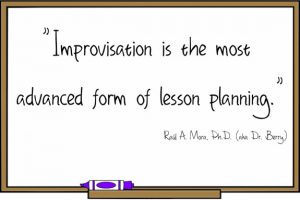 will react to the lesson. Sometimes, the lesson just does not work, and that is okay. But it is important to have a backup lesson or activity to supplement the lesson and to keep students on task and engaged during valuable classroom time.
will react to the lesson. Sometimes, the lesson just does not work, and that is okay. But it is important to have a backup lesson or activity to supplement the lesson and to keep students on task and engaged during valuable classroom time.
Know the expectations- Find out what is expected of you as a student teacher from both your mentor, your students, your placement school, and from your UMF Field Supervisor. Also, relay your expectations. Let your mentor know what you will need from them to be successful, outline your expectations about behavior and respect to your students, and express any concerns you have to either your mentor or your field supervisor.
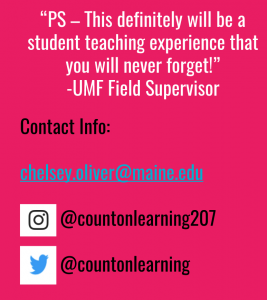 Make connections and learn from others- There are TONS of websites, Instagram pages, Twitter accounts, blogs, etc. that are for teachers, by teachers. You can find a variety of lesson plan ideas, classroom management tips, accommodations, tools, activities, and resources for teaching all ages. UMF alumna Chelsey Oliver took advantage of sites like these during her student teaching experience, and took it upon herself to create her own education inspired Twitter and Instagram pages- feel free to check them out!
Make connections and learn from others- There are TONS of websites, Instagram pages, Twitter accounts, blogs, etc. that are for teachers, by teachers. You can find a variety of lesson plan ideas, classroom management tips, accommodations, tools, activities, and resources for teaching all ages. UMF alumna Chelsey Oliver took advantage of sites like these during her student teaching experience, and took it upon herself to create her own education inspired Twitter and Instagram pages- feel free to check them out!
Stay organized and on top of your assignments- Start planning lessons ahead of time so that you can go back and make changes as the lesson approaches. Relay any deadlines that you need to meet to your mentor so that they can ensure you are getting what you need when you need it. Once you start to fall behind, it can be much harder to catch back up.
Take notes and ask questions- Your mentor teacher is there to model for you and to provide feedback. Take notes on the techniques and language they use, the way they manage their classroom, what you think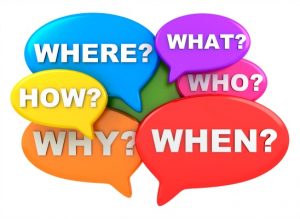 works and does not work. Also take notes on student behavior, as you may notice patterns that can be valuable in addressing classroom management skills.
works and does not work. Also take notes on student behavior, as you may notice patterns that can be valuable in addressing classroom management skills.
Enjoy the experience- While Student Teaching is a lot of work, it should be an enjoyable and rewarding experience. Form relationships with students and have fun with them, take advantage of all of the opportunities presented, and make it unique to you! Take it all in and relish the experience, it goes by fast, and it will be over before you know it!
It won’t be easy, but it will definitely be worth it! You have spent the past few years preparing for this, learning from professors, and dipping your toe in the water in practicum placements. Now it’s time to dive in and immerse yourself into the classroom as an active Student Teacher. We know you will all shine and do great. From all of us here at UMF, good luck and have fun!
Christina Dionne: Striving to Make a Difference
Recently, one of UMF’s alumna was featured on the Mt. Blue Regional School District website for her exemplary work in building relationships with students and individualizing instruction. Christina Dionne, a graduate from UMF’s Secondary Education program, is currently teaching math at Mt. Blue Middle School and taking strides everyday to better herself as an educator and her students as learners.
Christina has always liked math, and she was in the advanced math classes in high school. When she first came to UMF she was an art major, but after her freshman year she changed her major so that she could pursue a career in math. The UMF methods courses that Christina took brought about a passion for teaching in her.
After graduating, Christina took a job as a camp counselor. Two years later, she became the arts and crafts specialist at camp. On her fourth year, Christina was promoted to being a unit leader and was responsible for managing the four groups within her unit, communicating with parents, and organizing activities and field trips. Eventually, Christina took on a job in early childhood, where she was able to understand child development more clearly and gain an understanding of how to better implement a curriculum with a holistic approach. Christina then took on her position at Mt. Blue Middle School.
Christina has expressed her commitment to proficiency-based education, which helped her to earn the respect of administration. Christina puts in very long hours at school, staying late to volunteer with After School Study and immerses herself in her work and her students.
One of Christina’s goals is to develop a proficiency-based program in math and show her students how to track their own progress in comparison with the standards. Christina would like to incorporate a more hands on approach that requires students to solve real-life math problems, and to implement the skills they learn both inside and outside of the classroom. She loves to challenge her students’ critical thinking.
Along with increasing student proficiency, Christina also makes it a point to create a student community in her classroom. Students often work together to learn from one another, build peer relationships, and increase their self esteem. This approach allows Christina to individualize instruction for those who need it while others are working together.
When asked about the challenges that she faces, Christina said that student frustration and behavior can be difficult. Christina tries to understand the cause of the behavior and work with the student to help them solve whatever problem they are facing. She aims to build healthy, valuable relationships with students. Christina also works at getting students interested in math. She uses various techniques, approaches, games, and activities to make learning math more fun and applicable.
Christina is one of many amazing teachers to have come from a UMF Teacher Education Program, and Mt. Blue Middle School and her students are lucky to have her! For more information about the amazing schools and opportunities in the Mt. Blue Regional School District, check out their website!
World Language Education: Preparing Language Educators for a Diverse World
The University of Maine at Farmington is excited to announce that it has created a new Bachelor of Science in World Language Education program to prepare educators for a career teaching Spanish or French in schools. There is an increasing shortage in the state of Maine and across the country of qualified World Language educators in the K-12 classrooms. This new major is designed to address the need for fully-certified World Language educators in the state of Maine and beyond.
A Maine Department of Education World Language specialist reports that all Maine high schools are now required to offer foreign language classes as a proficiency-based graduation requirement, and many Maine middle schools are expanding their language programs as well. Schools need language educators for a variety of reasons, including preparing students for a continuously evolving diverse world, collaborating with families from diverse backgrounds, and meeting college admission requirements.
This major will be offered beginning in the Fall of 2018. This program will provide an opportunity for students at UMF to become certified to teach in the classroom, with a deeper understanding of language and culture. UMF also teaches courses in Chinese and Japanese languages. For more information about the World Language Education major, visit the UMF media release or the UMF website.
Social Justice Picture Book Display
This semester, students from both sections of Professor Kathryn Will-Dubyak’s Reading & Language Arts K-3 class (EDU 333) created a Social Justice Picture Book display on the third floor of Mantor Library.

As part of a class project, the students were asked to recommend children’s books for the library’s collections, and they decided to focus on books relating to social justice. In order to make their recommendations; they considered reviews from professional sources such as Horn Book and Publishers Weekly, looked at nominations for children’s book awards, and assessed the quality of the text and illustrations.
The titles the students chose have been purchased by the library and are currently being processed into the Mantor Library or Spenciner Curriculum Materials Center collections.
Some of the chosen books are listed below with brief descriptions:

The Invisible Boy by Trudy Ludwig- Brian is a quiet boy who feels invisible. None of his classmates make an effort to play with him, invite him to their birthday parties, talk to him, or be his friend. When Brian befriends the new student, Justin, they become an unstoppable pair, and Brian shines among his classmates when he and Justin work on a class project together. This story shows how a small act of kindness and compassion can make a huge difference for children, especially the quiet ones.
 All My Stripes: A Story for Children with Autism by Shania Rudolph and Danielle Royer- Zane, a young zebra with autism, worries that he will have problems at school if the students only notice his “autism stripe.” Zane’s mother helps him to learn to appreciate all of his stripes and all of his qualities, and to learn that he is not defined by his autism stripes but by how he treats others with honesty, respect, and care. The book includes a Reading Guide with additional background information about autism spectrum disorders and a Note to Parents and Caregivers with tips for finding support.
All My Stripes: A Story for Children with Autism by Shania Rudolph and Danielle Royer- Zane, a young zebra with autism, worries that he will have problems at school if the students only notice his “autism stripe.” Zane’s mother helps him to learn to appreciate all of his stripes and all of his qualities, and to learn that he is not defined by his autism stripes but by how he treats others with honesty, respect, and care. The book includes a Reading Guide with additional background information about autism spectrum disorders and a Note to Parents and Caregivers with tips for finding support.

Sparkle Boy by Leslea Newman- Casey is a young boy who likes to play with puzzles, dump trucks, and blocks. He begins to show interest in his older sister Jessie’s things- her sparkly skirt, her shiny nails, and her bracelets. The rest of Casey’s family supports his interests, but Jessie doesn’t think that those things are for boys, so she doesn’t know how she feels about it. One day, Jessie sees other boys in the library picking on Casey for his “girl clothes.” Jessie realizes that Casey has a right to wear whatever he wants to wear and be whoever he wants to be. This is a great story that addresses and respects individuality and encourages freedom of typical gender roles and stereotypes.
For a complete list of stories included in the display case, click on the brochure below! The display can be seen in person on the third floor of Mantor Library. Great job to Professor Will-Dubyak and her class for such an amazing display and selection of books that are sure to touch your heart and make you feel good!
Hannah and Hannah in France: An Update
As some of you may remember from our post a couple of months back, there are two UMF alumna, Hannah Some and Hannah Carlson, who are teaching English at the university level in Le Mans, France! After having been there for a couple of months, Hannah and Hannah have begun to adjust and have shared some information about their experiences thus far with us.
Both women report not experiencing much of a culture shock when moving to France. Hannah Somes describes it as “such a Westernized country that it really does not feel very different to me in my daily life  than the U.S.” Hannah Carlson had already studied abroad in Le Mans during her undergraduate career at UMF, so she was already somewhat familiar with life in Le Mans and in France. There were some tasks that they had to complete when they first arrived, such as setting up a bank account, which was difficult with the language barriers.
than the U.S.” Hannah Carlson had already studied abroad in Le Mans during her undergraduate career at UMF, so she was already somewhat familiar with life in Le Mans and in France. There were some tasks that they had to complete when they first arrived, such as setting up a bank account, which was difficult with the language barriers.
The classes that Hannah and Hannah are leading are discussion based, designed to help students improve on their English language skills. The classes are very open and broad, allowing the instructor to tailor the lessons towards student interests. “My courses are very speaking intensive; the students are really engaging in holding conversation and using their oral language” said Hannah Somes. Hannah S. indicates that her classes are large (55 to 65 students) making it difficult to have each student speak. She says, “…in these classes I have students talk in a group about a topic and the group presents on a topic of their choosing.” In Hannah S.’s smaller classes she has students do individual presentations and whole-group discussions.
Hannah and Hannah both have very long, busy schedules throughout the day. Hannah Somes teaches for a couple of hours in the morning and afternoon, taking a lunch break at home in between classes as meals are very important in France. Sometimes, she teaches evening courses as well. Hannah Carlson also has a busy schedule, as she is teaching 17 groups of French students this semester. “I have between 10 to 20 students in each class, so there are a lot of students to remember,” Hannah Carlson explains. “I meet with each group once a week. The course title is expression orale, which means it’s a speaking class. The students vary in level, from L1-L3. French universities only have three years of undergraduate study. So far, I have covered topics such as censorship in the United States and pop culture.”
There are some noticeable differences between French and American universities. Hannah Carlson discussed differences in the structure of classes. For example, if a student at a French university changes major, they have to start all over again and the previous classes completed/credits earned do not count towards the new major. They also have longer days at French universities, students are in class from 8 or 9 AM to 5 or 6 PM. “French students are also less willing to raise their hand in class and share answers or their opinion,” said Hannah C. “Classes aren’t set up for class discussion and are instead often lectures where students take notes and occasionally share answers. In my classes, it is sometimes difficult to get students to share answers and their opinion.” This has been a challenge for Hannah, but she has been working around it. “Some of the students have a lower English proficiency and have trouble understanding me. There is also a stigma towards French students sharing the wrong answer here. I’ve been trying to make my students feel comfortable in the class, which would help them be more willing to talk.” Hannah says that her classes at UMF helped to prepare her for her role as a lectrice by having many opportunities to be in front of a classroom.
While they have been busy teaching, they have also been able to find some time to enjoy all that France and Le Mans has to offer! Hannah Somes’ favorite memory so far was a British themed festival that occurred in September throughout the city featuring a Beatles cover band!
Moving across the world to teach in a new place can be overwhelming, but it is definitely rewarding. When asked what advice she had for those interested in moving abroad, Hannah Somes said “French institutions give less direct, step-by-step directions than in the U.S., so it is necessary to be self-directed and autonomous.” Hannah Carlson discusses the challenge that the language barrier presents when interacting in the community. “One of the biggest difficulties of living in France is the language barrier,” she said. “My language proficiency is slowly improving, but it can be hard at times. When I first arrived, I had to set up a bank account by myself with someone who didn’t speak English.” Language barriers can be challenging, and it is important to be aware of these changes and differences before making such a move, but they can be planned for.
All of us here at UMF are happy to hear that Hannah and Hannah have adjusted and are enjoying their new lives in France. Stay up to date with the ED360 blog to receive more updates about their positions and to learn more about the various opportunities that UMF provides both pre- and post-graduation.
Sweatt-Winter Awarded New NAEYC Accreditation
“The Sweatt-Winter Child Care and Education Center on the UMF campus is proud to announce it has been awarded a new, five-year term of national accreditation by the National Association for Education of Young Children.
NAEYC Accreditation is a rigorous and transformative quality-improvement system that uses a set of 10 research-based standards to collaborate with early education programs to recognize and drive quality-improvement in high-quality early learning environments.
The Sweatt-Winter Center met 100 percent of the criteria in each of 10 program standards and was commended by the NAEYC for its outstanding efforts in maintaining and renewing its accreditation and for its dedication and commitment to continuous quality improvement. The center fully-met the required elements within the standard criteria and scored highly on the random elements. Less than 10% of early childhood centers nationally attain NAEYC accreditation.
“We are so proud of this national accreditation and what it says about the quality of our programs,” said Julie Farmer, director of the Sweatt-Winter Center. “High-quality early education and childcare have huge benefits for children, their families and the entire community.”
The Sweatt-Winter program has provided full-time care and education to children in Franklin County and the surrounding areas for more than 30 years. The curriculum is based on the interests of the children, and is carried out through the use of age appropriate activities. It offers a safe, nurturing and stimulating environment for children ages 3-8. A preschool program for ages 3-5 and a before-and-after school program for ages 5-8 are available.
The Sweatt-Winter program is located in University of Maine at Farmington’s Ricker Addition. In addition to its value as a top quality child care program, Sweatt-Winter also serves as lab school for UMF education majors where best teaching practices are taught and demonstrated by onsite UMF faculty instructors.
Hours of operation are from 7 a.m.–5:15 p.m. The program currently has openings in its before and after-school child care program. For more information please contact Julie Farmer, director of UMF’s children’s programs at 207-778-7480.”
Click here to view the complete article.






